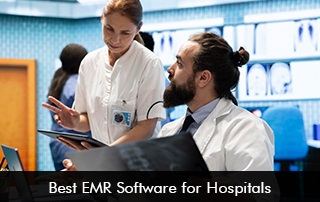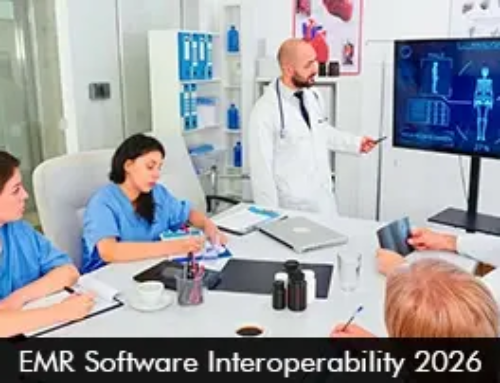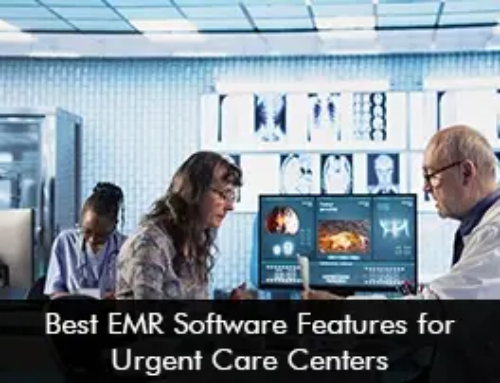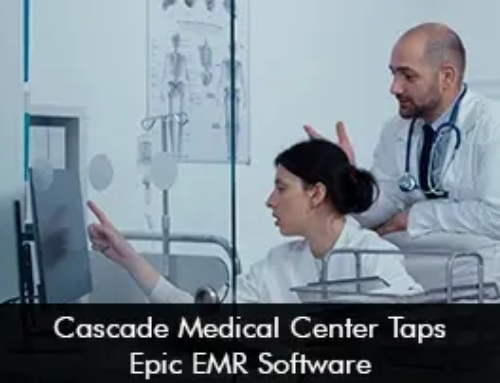Hospitals all over the United States depend on Electronic Medical Records (EMR) Software. They use it to make their daily operations run smoother, help providers and nurses be more accurate in their work, and ultimately lead to better results for patients.
The American Medical Association (AMA) stresses how important it is for these EMR Systems to work well together and be easy to use, so they cut down on paperwork hassles and let healthcare providers concentrate more on actually caring for their patients. For hospitals, picking the right EHR Software is a big deal because it makes a difference in patient safety, how well care is coordinated, and how efficiently the whole place runs.
EMR Software Features that Hospitals Require
Here are some key features hospitals should keep in mind when choosing EMR Software. A Hospital EHR Software is scalable, meaning it can grow easily to support the healthcare organization’s growing needs. EMR Systems features like seamless integration, robust interoperability, medication management tools, and AI integrations are favorable for hospitals to offer supreme patient care.
Best EMR Software for Hospitals
- Epic Systems – Epic EHR Software is a favorite pick for hospitals and large healthcare organizations in the USA. The EMR software vendor offers a scalable and feature-rich platform with robust interoperability for smooth information sharing. Patient engagement is the priority for many hospitals, and Epic Systems’ MyChart Patient Portal is intuitive and keeps the patient involved throughout their healthcare journey.
- Cerner (Now Oracle Health) – Cerner is another top name in hospital EMR Software, famous for its Millennium platform. This platform offers robust tools for managing both patient care (the clinical side) and the business side (revenue cycle). Oracle Health Software also supports real-time data monitoring, predicting future trends, and ensuring that different hospital departments work together smoothly. Because it’s used so widely all over the U.S., Cerner is a popular choice for both community hospitals and huge ones.
- Meditech Expanse – The cloud-based Electronic Medical Records (EMR) Software by Meditech Expanse is designed to be affordable for mid-sized hospitals. The Expanse platform is known for its user-friendly charting, mobile access options, and strong ability to connect with other EMR Systems. Hospitals often appreciate Meditech EHR Software for its helpful clinical decision support tools and how easily it integrates with other software they use.
- Allscripts (Veradigm) – Allscripts Professional EHR Software offers EMR Software solutions that can scale to meet the needs of hospitals, whether they’re small or large. They provide modular solutions, allowing facilities to pick and choose the components they need. Their Sunrise platform is particularly popular among hospitals looking for adaptability and comprehensive, enterprise-level tools.
Final Thoughts: Picking the Right EHR Software
The ideal EMR Software for a hospital boils down to its size, the types of specialized care it offers, its budget, and where it sees itself heading in the future. Hospitals should focus on solutions that provide strong clinical features, have reliable support from the vendor, and can smoothly connect all their different departments. Talking with the clinical and administrative teams—and maybe checking out resources from trusted groups like the AMA—can help hospitals make the smartest choice when investing in EMR software. Please feel free to consult our software experts at emrfinder.com to guide you through.








